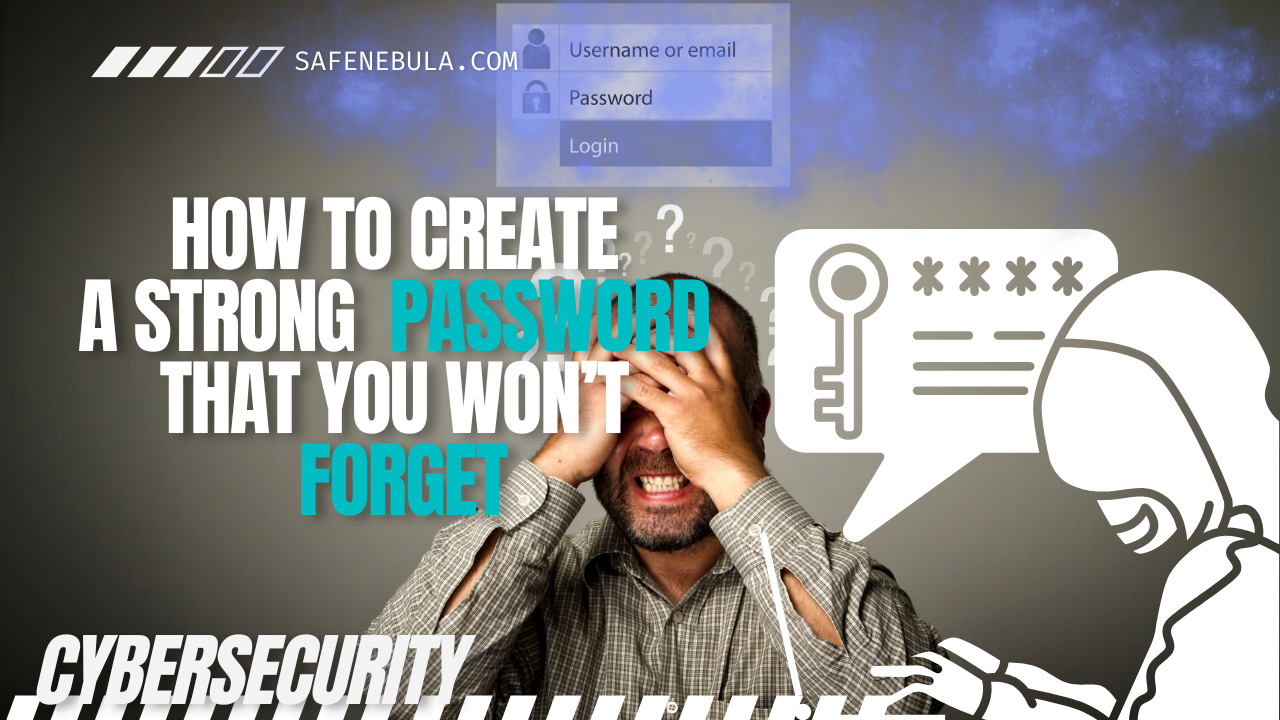In the digital age, a strong password is the first line of defense against unauthorized access to your personal and professional data. However, creating a password that is both secure and memorable can seem like a daunting task. This guide will walk you through the steps to craft robust passwords you won’t easily forget, highlighting the use of password managers, mnemonic devices, and the principles of password complexity.
Understanding Password Complexity

A strong password should be difficult for others to guess but easy for you to remember. It typically includes a mix of the following elements:
- Upper and lowercase letters
- Numbers
- Special characters (e.g., @, #, $, %)
The goal is to create a password that is resistant to brute-force attacks and isn’t easily cracked by automated tools.
Crafting a Memorable, Strong Password
1. Use a Mnemonic Device: Create a sentence or phrase that is meaningful to you and use the first letter of each word to form your password. For instance, “My dog Baxter eats 3 shoes on Sundays!” can be turned into a password like “MdB3$oS!”.
2. Incorporate Your Interests: Combine your hobbies or interests with numbers and special characters. For example, if you love reading and were born in 1985, you might create a password like “BookLover!1985”.
3. Leverage Patterns on the Keyboard: Identify a pattern on your keyboard that you can remember and use it to create a password by moving along the keys in a specific direction, including uppercase and special characters for added complexity.
The Role of Password Managers
Remembering a unique, complex password for each of your accounts can be overwhelming. This is where password managers come in handy. These tools securely store your passwords in an encrypted database, locked behind one master password – the only one you need to remember.
Benefits of Using Password Managers:
- Generate strong, random passwords for each of your accounts.
- Automatically fill in passwords on websites and apps.
- Offer additional security features like two-factor authentication (2FA) for accessing the password vault.
Additional Tips for Password Security
- Avoid Common Pitfalls: Steer clear of easily guessable passwords like “password123”, “123456”, or using easily accessible personal information.
- Update Regularly: Change your passwords periodically, especially for sensitive accounts like email, banking, and social media.
- Enable Two-Factor Authentication (2FA): Wherever possible, activate 2FA to add an extra layer of security. This typically involves receiving a code on your phone that you must enter along with your password.
Conclusion
Creating a strong, memorable password is essential for protecting your digital life. By employing mnemonic devices, integrating your interests, utilizing password managers, and adhering to best practices in password security, you can significantly enhance your online safety. Remember, in the vast digital landscape, a strong password is your personal guardian, keeping your data secure and your peace of mind intact.
